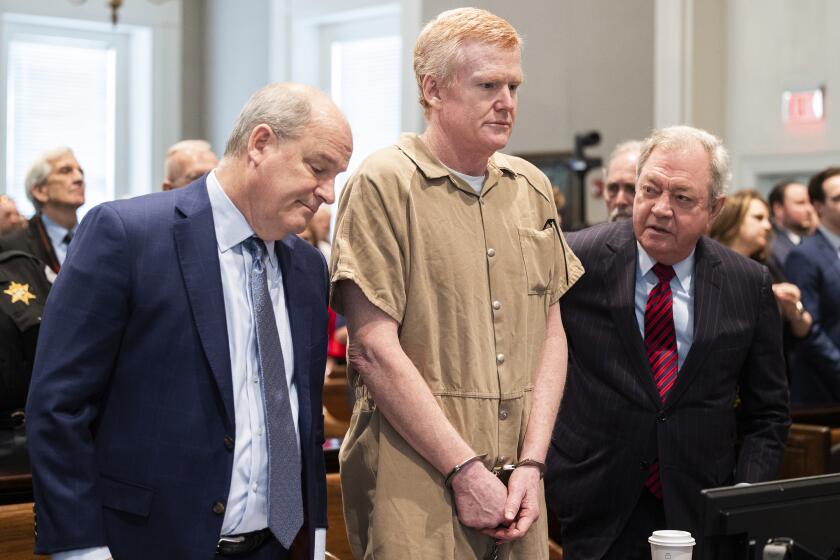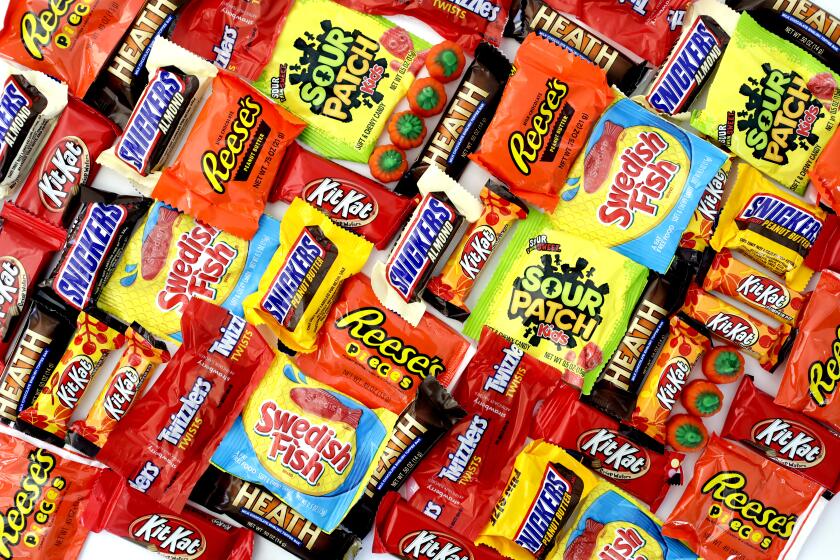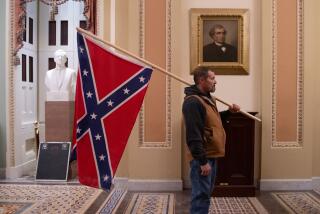Column: The 20th anniversary of the Iraq war also marks a colossal failure of the mainstream media

Twenty years ago, President George W. Bush ordered the invasion of Iraq, toppling the despot Saddam Hussein and fomenting a kind of hell that Iraq is still grappling with today.
Twenty years ago, this country’s mainstream media — with one notable exception — bought into phony Bush administration claims about Hussein’s stockpiles of weapons of mass destruction, helping cheerlead our nation into a conflict that ended the lives of thousands of Americans and hundreds of thousands of Iraqis. The war — along with criminally poor post-war planning on the part of Bush administration officials — also unleashed horrible sectarian strife, led to the emergence of ISIS and displaced more than 1 million Iraqis.
That sad chapter in American history produced its share of jingoistic buzzwords and phrases: “WMD,” “the axis of evil,” “regime change,” “yellowcake uranium,” “the coalition of the willing,” and a cheesy but terrifying refrain, repeated ad nauseam by Bush administration officials such as then-National Security Advisor Condoleezza Rice: “We don’t want the smoking gun to be a mushroom cloud.” (The memorable metaphor was dreamed up by the late Michael Gerson, a Bush speechwriter at the time.)
Of course, there was never any smoking gun, mushroom-shaped or not.
Iraq’s stockpiles of weapons of mass destruction had been destroyed in 1991 after Iraq invaded Kuwait and was beaten back by a coalition of 35 countries led by the United States. The United Nations Security Council had also required Iraq to end its biological and nuclear weapons programs.
This is not to say that Hussein was a defanged tiger; he was not.
Did the senator really insult the vice president? Did Harris really not accept her apology? Or is a misunderstanding being exploited to delegitimize women in politics?
But neither was he the threat he was portrayed to be. Misleading a public that had been shaken to its core by the 9/11 terrorist attacks turned out to be a relatively easy task for the warmongering neocons of the Bush administration. They foolishly believed they could impose democracy on a nation with no history of it.
Bush officials also manufactured phony links between Iraq and the 9/11 attacks orchestrated by Islamist militant Osama bin Laden and his terrorist group Al Qaeda. To his lasting mortification, the late Secretary of State Colin Powell assured the world in a speech to the United Nations just before the invasion that the war was completely justified by the danger Iraq posed to the world.
“My colleagues, every statement I make today is backed up by sources, solid sources,” said Powell. “These are not assertions. What we’re giving you are facts and conclusions based on solid intelligence.” His statements, he later acknowledged, were patently false, many of which were provided to U.S. intelligence by unreliable sources — exiles such as Ahmad Chalabi, an Iraqi opposition leader who dreamed of ousting Hussein and taking the reins of power in Iraq.
Powell’s statements are among those documented in 2008 by the Center for Public Integrity, which compiled the hundreds of lies told by Bush and his top officials as part of a campaign aimed at persuading the American public to support the invasion of Iraq “under decidedly false pretenses.”
Alex Murdaugh’s murder trial seemed less than spellbinding by L.A. standards. But the full family saga is the very model of a modern Southern gothic tale.
Most of the media, said the center, “was largely complicit in its uncritical coverage of the reasons for going to war.” There was a glaring exception to that complicity. Three reporters and an editor in Knight-Ridder’s Washington bureau were alone among the major news organizations in questioning the administration’s narrative about WMD. Jonathan Landay, Warren Strobel and Joe Galloway, with their editor John Walcott, threw water on so much of what the mainstream media was reporting. The drama was captured in “Shock and Awe,” a 2017 feature film by Rob Reiner, who plays Walcott.
In 2013, on the 10th anniversary of the invasion, Walcott told me his team was driven by skepticism, journalism’s most precious resource.
“Most of the administration’s case for that war made absolutely no sense, specifically the notion that Saddam Hussein was allied with Osama bin Laden. A secular Arab dictator allied with a radical Islamist whose goal was to overthrow secular dictators and reestablish his caliphate? The more we examined it, the more it stank.”
Also, he said, rather than rely on high-ranking administration officials, they sought out lower-level staff who were not political appointees and less apt to parrot the president to stay in his good graces.
A new study finds an association between erythritol, a popular sweetener, and heightened cardiovascular risk.
Knight-Ridder turned out story after story undercutting the administration’s (and the New York Times’, Washington Post’s and Los Angeles Times’) version of Hussein’s capabilities. Some of Knight-Ridder’s own newspapers — among them, the Philadelphia Inquirer — refused to run the stories, for fear of being contradicted, especially by the New York Times, which explained its credulous coverage of the WMD issue about 15 months after the invasion.
“It is still possible that chemical or biological weapons will be unearthed in Iraq,” wrote Times editors, “but in this case it looks as if we, along with the administration, were taken in.”
Of course, there was robust opposition to the invasion of Iraq in the U.S. and around the world, though in the first few months of the conflict, a majority of Americans polled were supportive.
It did not take long for disenchantment to set in. After all, where were all those Iraqis that Vice President Cheney had promised would greet American soldiers as “liberators”?
Cheney has never apologized for his role in the Iraqi blunder (as far as I can tell, he is still defending it). Neither has Bush, although he recently, if accidentally, admitted the truth.
In a speech last May at the Bush Presidential Center in Dallas, he said it was “the decision of one man to launch a wholly unjustified and brutal invasion of Iraq, I mean, Ukraine.”
He winced, then almost under his breath, added: “Iraq too.”
More to Read
A cure for the common opinion
Get thought-provoking perspectives with our weekly newsletter.
You may occasionally receive promotional content from the Los Angeles Times.











